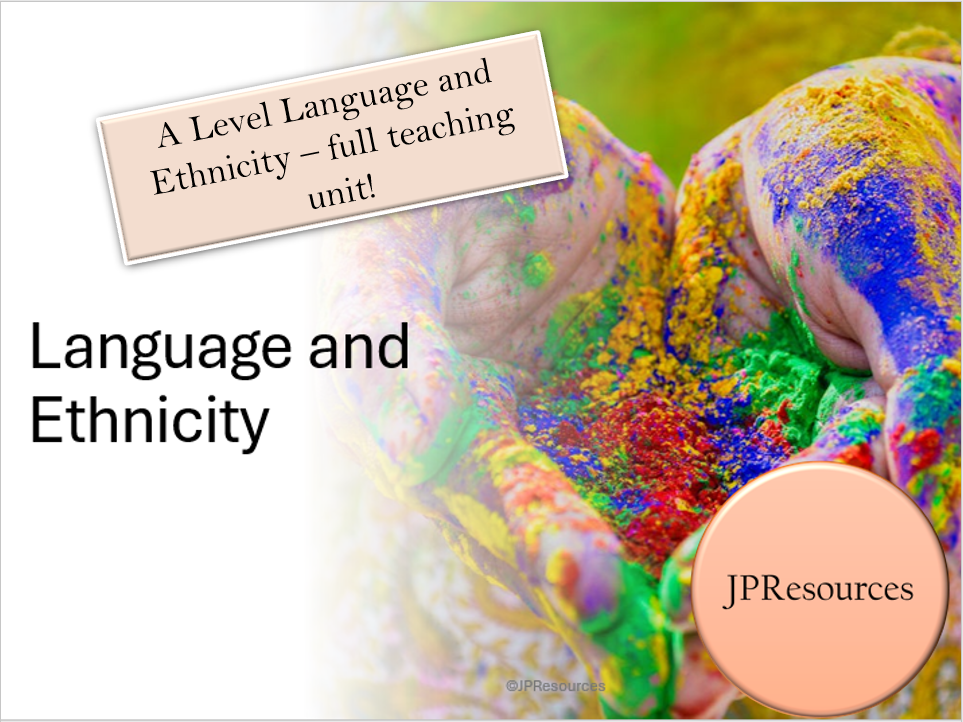A 10 lesson unit comprising of a 68 slide PowerPoint, 9 different worksheets (including texts for analysis) exploring the topic of Language and Ethnicity and a summary terminology and theory sheet.
Each lesson includes a starting discussion prompt which acts as a learning objective, detailed notes on the theories and concepts listed below, a worksheet (with the exception of lesson nine) and activities, and a homework task. The following theories and concepts are covered:
- Idiolect, dialect, sociolect and ethnolect
- Pidgins and creoles
- Multicultural London English – Jenny Cheshire and Paul Kerswill (2011)
- Multicultural British English – Rob Drummond (2016)
- Black British English – Ife Thompson (2022)
- Code switching – Einar Haugen (1950s)
- Code mixing – Ronald Wardhaugh (1986)
- Types of Code Switching
- West Yorkshire Study – Gary Ives (2014)
- White talk Black talk – Roger Hewitt (1986)
- South London Study – Gary Ives (2014)
- Code Switching – Janet Holmes (2017)
- Language in a Black Community – Viv Edwards (1986)
- The objectification of ‘Jafaican’ – Paul Kerswill (2014)
- Ethnolects – Penelope Eckert (2008)
- Stylising the ‘roadman’ – Christian Ilbury (2023)
- Style-shifting in Multicultural London English – Oxbury and De Leeuw (2020)
- Phonetic variation and change in the Cockney Diaspora – Cole and Evans (2020)
- Style Repertoire and Social Change in British Asian English – Devyani Sharma (2011)
- A new methodology for the study of style variation – Devyani Sharma and Ben Rampton (2015)
- Aspects of identity in a second language – Gordon Drummond (2012)
- Language as a resistance identity – John Pitts (2012)
- Black/white borders through linguistic stylization – John Clark (2003)
- Style shifting and identity – Rusty Barrett (1994)
- Cultural appropriation in language – John McWhorter (2021)
- Language and ethnicity and identity – John Ogbu (1999)
- Linguistic Injustice – April Baker-Bell (2020)
There are some references to AQA-style A Level specification questions, but you can adapt these if needs be. These can be found on slides 57-65. Lesson 9 is based on an AQA A Level question.
The final lesson is a consolidation activity complete with guided revision cards. Alternatively, you could use an app such as Quizlet so that the students could produce digital revision resources.
